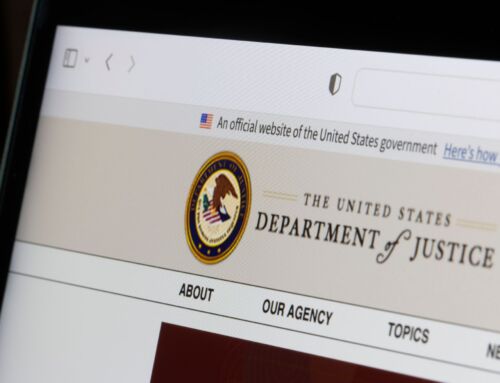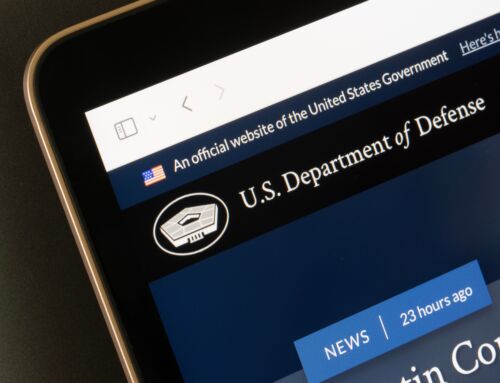
Voluntary carbon credit markets allow companies and individuals to offset their carbon emissions by purchasing credits from projects that reduce or remove CO2. Owing to a lack of oversight, the space had been vulnerable to fraud as bad actors have engaged in false reporting, double counting of credits, or even failed to deliver on carbon reductions promised. However, in June 2023, the Commodity Futures Trading Commission announced the creation of the Environmental Fraud Task Force meant to, among other responsibilities, address fraud and misconduct in the voluntary carbon credit markets.
The CFTC Takes Its First Action
On October 2, the CFTC filed a complaint in the U.S. District Court for the Southern District of New York against Kenneth Newcombe, former CEO and majority shareholder of CQC Impact Investors LLC (CQC), a carbon credit project developer. The complaint alleges fraud and false, misleading, or inaccurate reports related to voluntary carbon credits. The CFTC also issued orders filing and settling charges against CQC as well as Jason Steele, CQC’s former COO. These actions represent CFTC’s first ever actions for fraud in the voluntary credit market.
Complaint Against Newcombe
The complaint against Newcombe alleges that from 2019 to December 2023, while CEO and majority shareholder, Newcombe engaged in a fraudulent scheme that involved reporting false and misleading information to at least one carbon credit registry and third-party reviewers, as well as others. By doing so, Newcombe presented a misleading impression of the quality of the project developer’s emissions-reduction projects to obtain carbon credits far beyond what the company was entitled to receive. The company then went on to sell these credits to others. The CFTC is seeking civil monetary penalties, disgorgement of ill-gotten gains, restitution, permanent trading and registration bans, and a permanent injunction against further violations of the Commodity Exchange Act (CEA).
Order Against CQC
The CQC order finds that from 2019 to December 2023, CQC engaged in a scheme related to projects it developed. Under the project, CQC claimed that it would reduce carbon emissions, implementing measures such as installing more efficient cookstoves or LED light bulbs in sub-Saharan Africa, Asia, and Central America. CQC then reported this information to at least one carbon credit registry, third-party reviewers, as well as others and then sought and received carbon credits for the falsified reporting. From there, CQC sold those credits to other participants in the voluntary carbon credit market.
The order against CQC, found that it fraudulently reported false, misleading, and inaccurate information in connection with the verification and issuance of carbon market credits, which resulted in issuances of millions more carbon offset credits than CQC was entitled to receive. In the end, CQC admitted to these findings and acknowledged that its conduct violated the CEA and CFTC regulations. The penalties levied against CQC required that it pay a $1 million civil monetary penalty, cease and desist from violating the applicable provisions of the CEA and CFTC regulations, and comply with certain conditions and undertakings, including the cancellation or retirement of voluntary carbon credits sufficient to address its conduct.
Order Against Jason Steele
In addition to the CQC Order, the CFTC order against Steele found that, while Steele was COO of the project developer, he intentionally participated in the project development providing false and misleading information to at least one carbon credit registry and third-party reviewers, in addition to others, with the intent of presenting a misleading representation of the quality of the cookstove projects, thus wrongfully increasing the number of carbon credits a project would produce. Steele admitted to these findings and, in addition to CQC, acknowledged that his conduct violated the CEA and CFTC regulations.
The role of whistleblowers
Although this specific case didn’t involve whistleblowers, whistleblowers can play a crucial role in helping uncover carbon credit market schemes similar to this. In addition to ensuring money isn’t wasted, securing the integrity of the carbon credit markets also has implications for the environment, with bad actors’ fraud setting society back in meeting critical environmental targets to safeguard our planet. Whistleblowers whose information leads the CFTC to bring an action, or if the information significantly contributes to the success of a CFTC action that results in more than $1 million in monetary sanctions, can be awarded anywhere between 10 and 30 percent of penalties collected. All whistleblower awards are paid from the CFTC Customer Protection Fund, which was established by Congress, and is financed entirely through monetary sanctions paid to the CFTC by violators of the Commodities Exchange Act. No money is taken or withheld from injured customers to fund the program. The CEA also provides confidentiality and anti-retaliation protections for whistleblowers.
Baron & Budd Whistleblower Attorneys
Baron & Budd’s whistleblower representation team has more than 50 years of experience representing dozens of clients in government fraud cases. They have returned more than $6.0 billion to federal and state agencies with whistleblower recovery shares as high as 50%.
For more information, see What You Need to Know About Becoming a Whistleblower.
Get Answers Now
Get a free case evaluation to help determine your legal rights.




